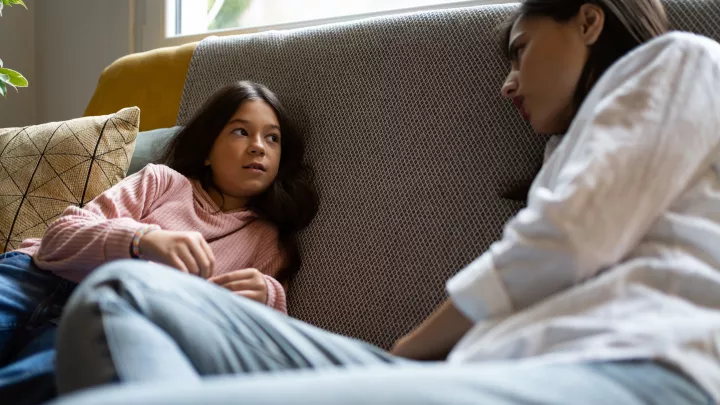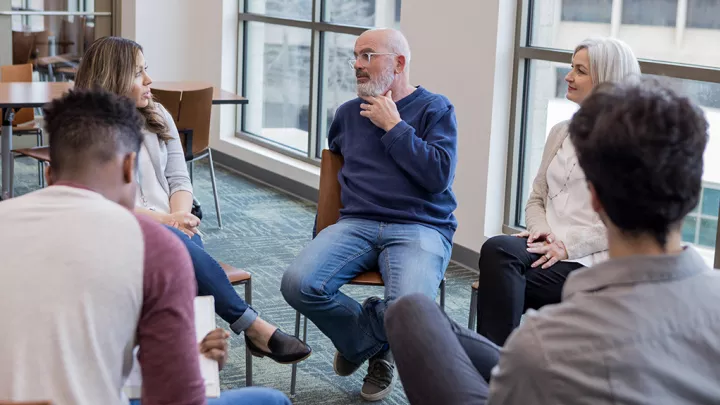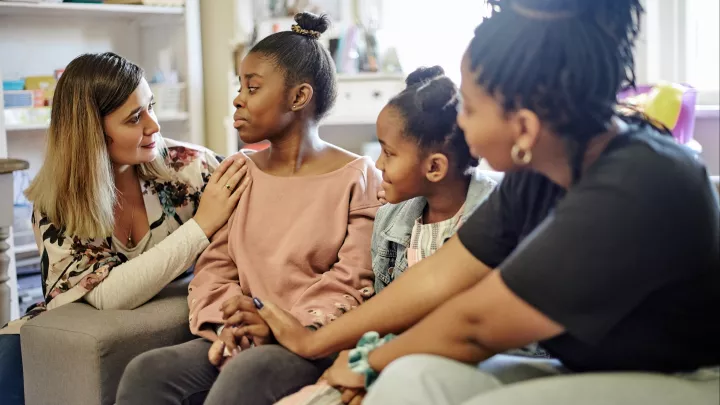
What Is Health Literacy? (And Why You Should Care)
Communication is an important part of health care. If you understand what your doctor is telling you, you are more likely to follow instructions and be a helpful member of your health care team. But many factors can affect how well people understand health information—called their health literacy.
Jacqueline Grace, Senior Education and Training Specialist in the Office of Patient Experience at Children’s Hospital Los Angeles, answers key questions about health literacy and why it is important. She also discusses the importance of Healthy People 2030, an initiative involving more than 20 federal agencies that includes health literacy as an area of focus in the effort to improve health and wellness in the U.S.
What is health literacy?
There are two kinds of health literacy:
- Personal health literacy measures how well a person can find, understand, and use information and services to inform health-related decisions and actions for themselves and others.
- Organizational health literacy describes an organization's commitment to equitably enable individuals to find, understand, and use information and services to inform health-related decisions and actions for themselves and others.
I am so happy we now have two definitions, developed by Healthy People 2030. Previously, the burden of understanding was on the individual. Now there is a shared responsibility between the person to advocate for themselves, and the health care organization to communicate effectively what it wants the patient and family to know.
In the past, “health literacy” referred to someone’s ability to find and understand health information. Now the emphasis is on being able to use that information.
Why is health literacy so important?
Multiple studies have shown that people with higher health literacy make fewer medication or treatment errors, and are better able to negotiate the health care system, comply with treatments and avoid hospitalization.
For example, every day at Children’s Hospital Los Angeles we prepare family members to care for their children at home. Often, caregivers must learn a complex medical procedure or be able to do the math to adjust a medication dose for their child. We are dedicated to ensuring they are ready for these challenges.
How do I know if I have good health literacy?
It’s not a question of having good or bad health literacy. It can go up or down depending on the situation. At any given time, any number of factors can affect how well you are able to understand and use medical communications you receive.
The moment you are stressed, sick or scared, your own health literacy can go out the window. Imagine you hear upsetting news about your child’s health or you must absorb difficult instructions. Even the psychosocial environment can matter—such as being in a hospital room with machines beeping or being distracted by worrying about your other children or demands.
All of these things, and more, impact your ability to understand.
Can educated people have low health literacy?
No one is immune when you’re dealing with an acute crisis or a complex decision. I remember speaking with a patient’s father about his child’s condition. This father was an astrophysicist by profession. But in that moment, he was a parent first, and needed to have the information given to him in a very basic manner.
A few years ago, I was diagnosed with Type 1 diabetes. I was emotional and felt overwhelmed by how my diagnosis was going to change my life. There was a lot of information and new skills I had to learn, but I wasn’t able to retain all of it—even with my background as a Master’s-prepared health educator. I had to ask many questions, sometimes multiple times. My emotions and the complexity of the information affected my ability to learn and understand.
What does health literacy mean for people whose first language is not English?
Navigating a health care environment in a language that you aren’t familiar with can add to the challenges you face in using the health information you are given. Under California state law, people with limited English proficiency have a right to receive communication assistance. Everyone who requests a medical interpreter is entitled to one.
CHLA meets that need by employing a team of experienced medical interpreters, and providing interpreting services in a wide range of languages. We also translate patient and family education materials into multiple languages.
Are there other barriers to improving health literacy?
With the many different cultures we see at CHLA, one of the commonalities is the attitude that “the doctor knows best.” Some people don’t want to ask questions of a physician, in particular, because they think it might be disrespectful or even offensive.
Others may feel ashamed or embarrassed that they don’t understand something, so they don’t ask for an explanation.
How do you counteract these problems?
One way is by encouraging our providers to use a “teach-back approach”—after a doctor or nurse explains a medical situation or at-home care, they ask the family member to repeat back to them what they just heard. This way, gaps in understanding are identified in the moment and can be addressed. We also encourage people to ask as many questions as they need to ask.
What else is CHLA doing to advance health literacy?
We are acting on several fronts. We are training staff in other communication techniques, including the use of plain language, to ensure we are doing our best to help families understand the issues they face and questions they may have. Anyone in the community can visit or call our Family Resource Center, and we continually update our health library.
We review all health materials used to educate patients and caregivers, to make sure they are as easily understood as possible. Some members of our Parent Family Advisory Council volunteer as content reviewers because they understand the importance of clear, effective communication.
What can organizations do to improve health literacy?
Assess where you are now, decide where you need to improve and find out what others are doing. Consider the needs of audiences with a range of skills and abilities. And use plain language as much as possible.
Before we expanded our health literacy training, we met with representatives of different children’s hospitals across the country. We found that there was inconsistency and many models being used. We set out to develop an approach and model based on best practices from each of the programs we learned about.
What can I do if I don’t understand the medical information given to me?
Ask questions about anything you want to know or don’t understand. Write out your questions ahead of your appointment; it’s likely you may not remember them during a stressful conversation. Understand that your medical provider wants to communicate clearly and needs your participation—your questions and input—to make that happen.
How can I become more health literate in general?
Be aware that stressors may impact your ability to understand information, but this is normal! Know that everyone reacts differently. Be kind to yourself if you don’t grasp information or a new skill right away. Don’t let embarrassment stop you from learning to advocate for yourself or your loved one.
And please give your health care providers feedback about what they’re doing right and how they can do better. There are so many ways to make health information clearer and more usable. We would love to hear your opinions at CHLA.


